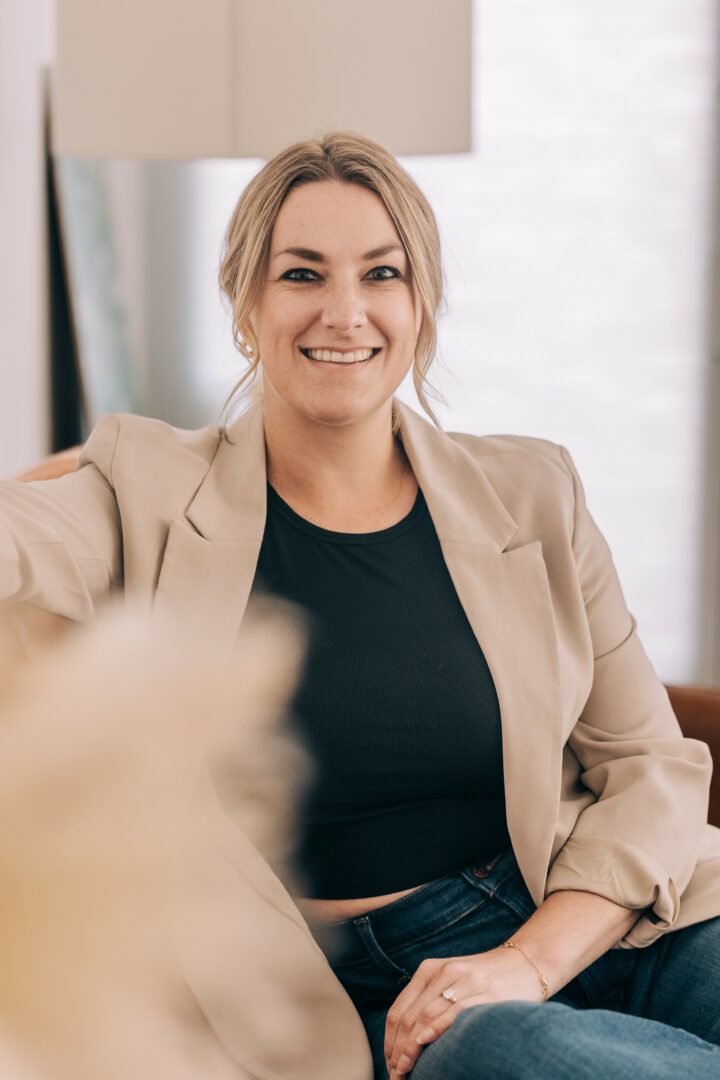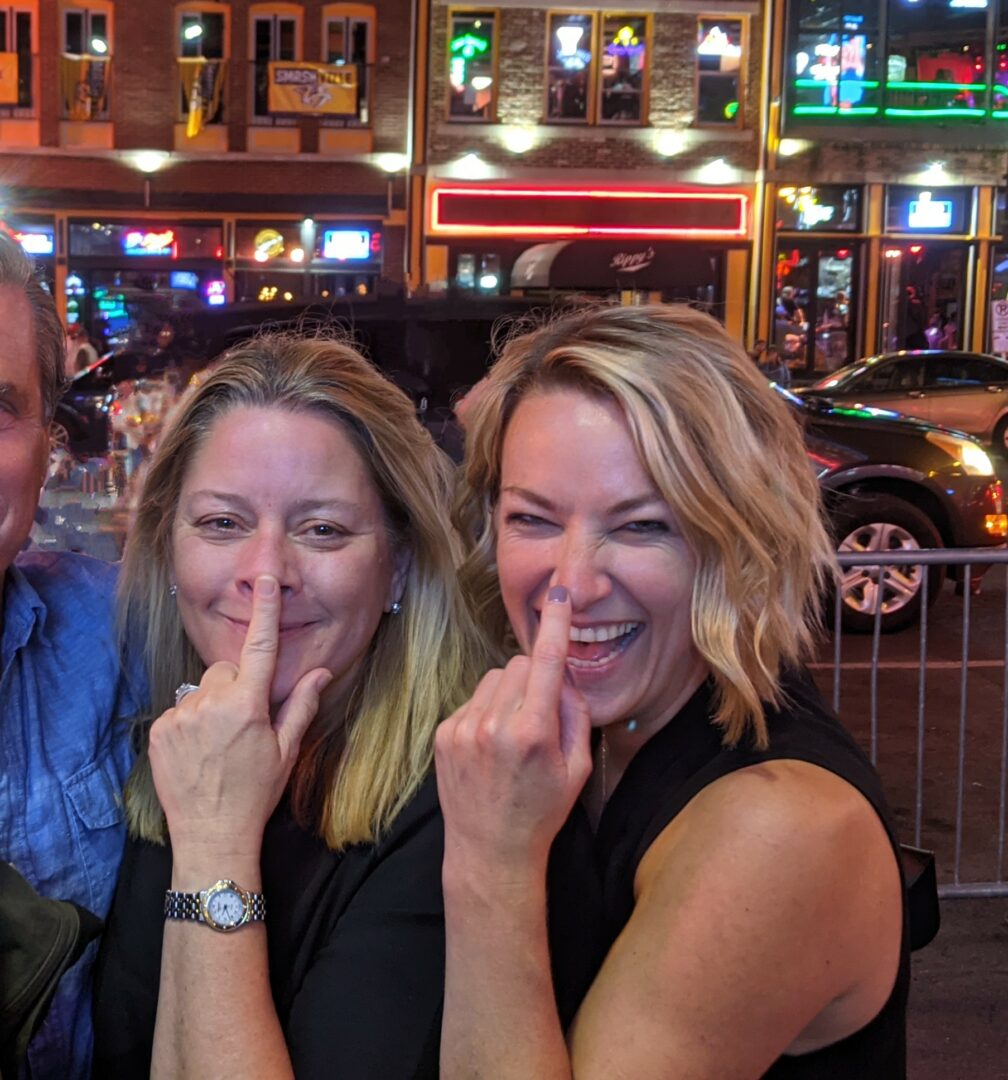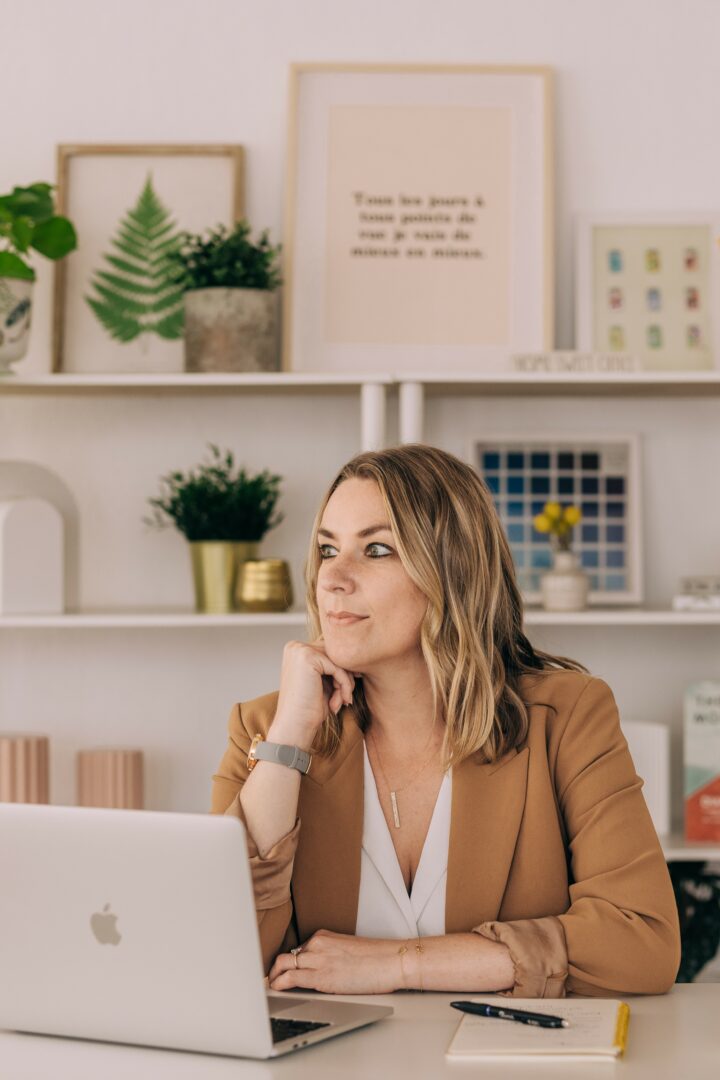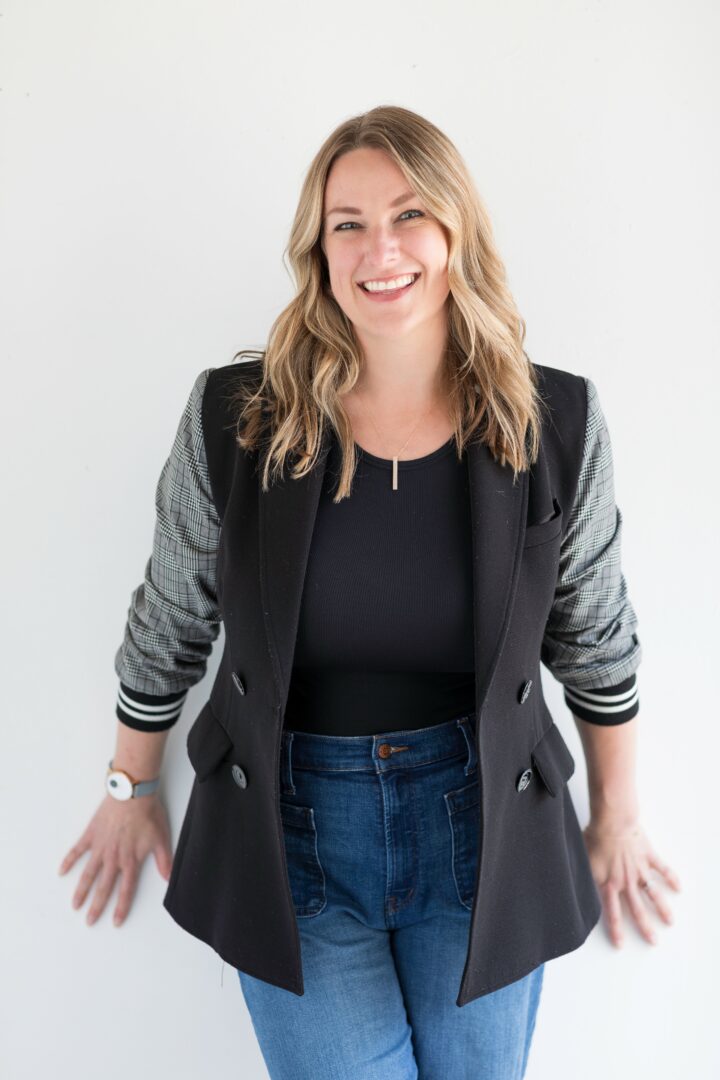We’re excited to introduce you to the always interesting and insightful Natasha Walstra. We hope you’ll enjoy our conversation with Natasha below.
Natasha, so great to be with you and I think a lot of folks are going to benefit from hearing your story and lessons and wisdom. Imposter Syndrome is something that we know how words to describe, but it’s something that has held people back forever and so we’re really interested to hear about your story and how you overcame imposter syndrome.
Imposter syndrome hit me hardest when I needed confidence most – as a new mom trying to rebuild my business after everything fell apart.
Five months ago, my business hit its lowest point. Our son was born two months early, and between the NICU, holidays, and just surviving, I wasn’t serving clients or building my pipeline. By March, my revenue had dropped to the lowest it had been since day one, my pipeline was empty, and as the breadwinner, the pressure felt crushing.
What I didn’t realize was that I was drowning in a perfect storm of imposter syndrome and postpartum anxiety. I was questioning everything I’d built while my hormones were raging and I could barely think straight.
The turning point came during a walk with my husband when I was completely spiraling, listing all the ways I was failing. He stopped me and asked the simplest question: “How did you do it last year?”
Reality check. I’d built my business from zero to six figures in under six months just the year before. This is literally what I do best – I teach this process to clients every day. I just… forgot.
The postpartum fog and anxiety made me lose sight of my own playbook.
My approach to overcoming imposter syndrome:
1. Get back to fundamentals. When self-doubt creeps in, I return to what I know works: clear offers, genuine relationship building, and paying attention to what clients actually need.
2. Seek outside perspective. I hired a coach to get out of my own head. Sometimes you need someone outside the situation to remind you of your capabilities.
3. Let results speak. Instead of fighting the internal voice, I focused on serving clients well. The last three months brought in 6 figures in new business and 17 new clients – proof that even in my darkest professional moment, the fundamentals still work.
4. Remember your track record. As an introverted SDR, I used LinkedIn to stack executives’ calendars without cold calls. As Director of Sales at Forbes Books, we doubled company sales in my first year. I’ve proven this approach works across every role.
The ultimate test of overcoming imposter syndrome? Whether your methods work when you need them most. Mine passed.
Now when that voice whispers, “You don’t know what you’re doing,” I have concrete evidence that I do – even when everything else feels uncertain.

Let’s take a small detour – maybe you can share a bit about yourself before we dive back into some of the other questions we had for you?
I help business owners, executives, and sales professionals transform their LinkedIn presence into a powerful revenue-generating engine through authentic personal branding and relationship-driven social selling. My mission is simple: help leaders become the visible, sought-after experts in their industries so they’re consistently top-of-mind for their network—and their network’s network.
There are over a billion users on LinkedIn, but only about 1% are creating original content. That means there’s an incredible opportunity for professionals to become the go-to expert in their field—it’s just a matter of understanding how to do it strategically and being consistent.
I’ve developed what I call the REALationship Growth Method, which focuses on building genuine business relationships rather than chasing vanity metrics or using pushy sales tactics. This approach has helped my clients close six-figure deals, land speaking engagements, and build referral networks that consistently generate opportunities.
What I love most about this work is that it’s not just about LinkedIn tactics—it’s about helping professionals build the confidence to share their expertise authentically. When someone finally feels comfortable showing up as themselves on a professional platform, it transforms not just their business results, but how they see their own value in the marketplace. It’s just so rewarding.

If you had to pick three qualities that are most important to develop, which three would you say matter most?
1. Business Development Foundation
Starting as a Sales Development Representative—the role where you “smile and dial” 100+ calls a day—was one of the hardest positions I’ve ever had, but also the most valuable. It taught me the fundamentals of pipeline building, qualification, and persistence that I’ve carried through every role since. I’ve never struggled to fill my pipeline because I learned early how to identify opportunities, start conversations, and move relationships forward systematically.
My advice: Don’t skip the grunt work early in your career. Those foundation-building roles teach you skills you’ll use forever. Even if it feels beneath you or incredibly difficult, the discipline and systems thinking you develop will serve you throughout your entire career.
2. Deep Empathy
This one’s ironic—I almost didn’t get hired for a Director of Sales role because HR said I scored “too high on the empathy scale to be a good salesperson.” They thought I’d be too soft to close deals. But my empathy is actually what makes me successful at sales. I listen for real problems, not just opportunities to pitch. I ask better questions because I genuinely care about the answers. I build trust faster because people feel heard, and I create solutions that actually fit rather than pushing standard packages.
My advice: Don’t let anyone convince you that “soft skills” are weaknesses. In our increasingly digital world, the ability to truly connect with and understand people is a massive competitive advantage. Those traits that might seem like vulnerabilities could be your greatest strengths.
3. Internal Competition
I’m incredibly competitive—not just with others when I was on teams, but with myself. I constantly need to do better than I did the week before, the month before, the year before. This drive for continuous improvement has pushed me to keep evolving my approach, learning new strategies, and never settling for “good enough.”
My advice: Channel your competitive energy inward. Instead of comparing yourself to others (which can be demotivating), compete with your past self. Set personal benchmarks and consistently work to beat them. This creates sustainable growth because you’re always pushing yourself to improve, regardless of what anyone else is doing.

Who has been most helpful in helping you overcome challenges or build and develop the essential skills, qualities or knowledge you needed to be successful?
My mentor, Dee Kerr, has been absolutely transformational in my career—she’s basically family now, and we met in the most unexpected way almost 10 years ago.
We were at this massive 7-day manufacturing trade show, and by day six, everyone was exhausted and running on fumes. That’s when Dee showed up at our booth with Chick-fil-A for all 30 of us who were still standing. I remember thinking, “Who is this amazing, slightly crazy lady?” It was perfect timing and the most random act of kindness.
But the real magic happened the following week back at the office. Dee came up to me and said, “There’s something special about you. We need to work together.”
Dee ended up taking over my team and became the most important mentor I’ve had and still have to to date. I had never had someone genuinely believe in me or tell me how good I was at what I did. She helped me articulate my value, taught me how to show up confidently, and guided me in developing my skills in ways I never would have thought of on my own.
The belief she had in me completely changed my career trajectory. When she left to join another company as Chief Revenue Officer, she brought me with her as VP—jumping me past years of traditional role progression that never would have happened otherwise. That leap ultimately led to the confidence I needed to start my own business.
Sometimes you need someone else to see your potential before you can see it yourself. I basically had to trick myself into believing I was capable by trusting her judgment, even when I didn’t believe it about myself yet. Having someone invest in your growth and genuinely advocate for your success can change everything.
Find that person who sees something in you that you don’t see yet—and when they offer guidance or opportunities, say yes even if you don’t feel ready. Sometimes the most important career moves happen because someone else believed in us first. And once you experience that kind of mentorship, pay it forward. I try to be that person for my clients now—the one who sees their potential and helps them step into it.
Contact Info:
- Website: https://www.nearpoinstrategies.com
- Instagram: https://www.instagram.com/nearpoint.strategies/
- Linkedin: https://www.linkedin.com/in/ndwalstra/

Image Credits
(the picture with the other person is with me mentor, Dee, I mention in one of the questions).
Image credits, Sansan Hao
Kip Karson
so if you or someone you know deserves recognition please let us know here.




